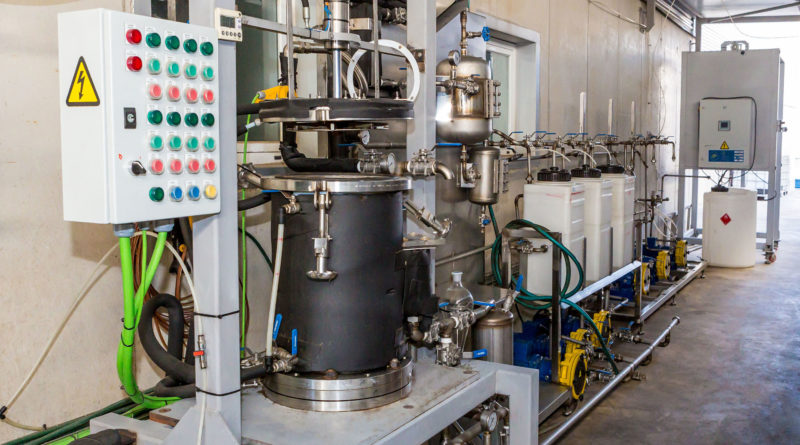WDS awarded as Best LIFE-Environment Project 2016-2017
The Wooldryscouring (WDS) Project – Eco-Efficient Dry Wool Scouring with total by-products recovery – received the award of Best LIFE-Environment Project for the 2016-2017 period. THe WDS project has been chosen by the EU Member States represented on the LIFE Committee, together with the LIFE Unit, have identified the 22 Best LIFE-Environment projects completed during 2016-2017. Details on the LIFE Programme website.
The award is a set of ‘best practice’ criteria including projects’ contribution to immediate and long-term environmental, economic and social improvements; their degree of innovation and transferability; their relevance to policy and their cost-effectiveness.
Results:
The Wooldryscouring (WDS) project demonstrated an innovative wool scouring cleaning process to remove impurities in the early stages of wool manufacturing, which resulted in a cleaner product and reduced environmental impacts in terms of water and energy consumption and polluted wastewater generated. The consortium created with LEITAT and CSIC as research centres, RMT as an industrial partner and Tavares as a scouring plant, designed, built, tested and demonstrated at pilot scale the new technology, which uses organic solvents instead of the hot water with alkalis and detergents used in conventional wool scouring. In this way, grease (mainly lanolin) can be extracted at an earlier stage, for example, for use in the cosmetic industry. To achieve this, the WDS approach uses a batch production process rather than the conventional continuous production process in water. This new approach is highly innovative in the sector.
As a result of the pilot demonstration, the project team produced wool that was whiter, cleaner, smoother and with larger fibres, than conventionally scoured wool. The project’s wool was practically free of grease content, with 95% of wool grease (lanolin) being recovered for use as a valuable by-product. In addition, nearly 100% of the wool dust was recovered, which can be used as an agricultural fertiliser.
The new dry scouring process resulted in several environmental benefits:
- Water: o Reduction of 70% in water consumption; o Reduction of wastewater effluents in the rinsing water process by 70%; o Wastewater produced of better quality as it had 75% lower Chemical Oxygen Demand (COD); and o The need for detergents and chemicals was reduced by 70%.
- Energy and climate: o Reduction of 30% in energy consumption mainly from the wastewater management system (reduction of amount of wastewater and improved quality of the effluent); and o Carbon footprint reduced by 96 kg of CO2 eq. per functional unit with the WDS technology compared to traditional processes.
- Waste: Recovery of water-polluting greasy wool waste (95% recovery of lanolin) components and other by-products avoiding expensive water treatment and waste disposal.
WDS technology has lower environmental impact (Life Cycle Assessment, LCA) than the traditional wool scouring process. The low fugitive emissions of solvent measured at the pilot plant due to the solvent manipulation and vacuum suction pump could be reduced significantly at industrial scale when implementing mechanization and automation.
The technology developed also produces economic benefits. Reductions in waste generation and water, energy and chemical consumption using the WDS technology resulted in important cost savings, compared to the costs of conventional wool scouring. The Economic Assessment conducted by the project team showed that the WDS process should be economically viable in Europe and holds a high replicability potential. The project’s technology represents a significant step towards achieving a closed loop concept where all the current wastes streams are recovered as by-products, in line with EU circular economy policy and the Europe 2020 Strategy for smart, sustainable and inclusive growth.
Policy-wise, due to the valorisation of the dust and grease recovered using the WDS process, the project is in line with the Waste Framework Directive (2008/98/EC), which prioritises valorisation rather than waste disposal. Furthermore, reductions in water consumption together with the improvements in the quality of the process’s final effluent contribute to the implementation of the Water Framework Directive (2000/60/EC), aiming to achieve a good status of all EU water bodies.
The project proved the environmental and economic viability of the new technology. The project beneficiaries are therefore looking for partners who wish to implement WDS at semi-industrial scale in order to boost confidence in the sector since the implementation of the WDS process would mean to change the process substantially, replacing the traditional continuous scouring process using water with a batch scouring process using solvent.
The process has the potential to increase the competitiveness of the European wool industry. Many European wool scouring companies cannot afford wastewater treatment costs (accounting for nearly 28% of total production costs). Wool scourers cannot find other viable alternatives to scour wool and they close progressively. In fact, in Europe there are only 18 wool scouring manufactures left. So, wool traders sell greasy wool to other countries to be scoured where the scouring costs are lower. The WDS process could reverse this trend, to help maintain and recover the wool industry in Europe, as a result of being 25% cheaper (with further benefits possible through lanolin valorisation). New jobs could be created after industrial implementation, with worker health benefits due to reductions of odour and dust. Around 18 industries requested to receive updated information after the project end date.
For more information, contact sbalsells@leitat.org

